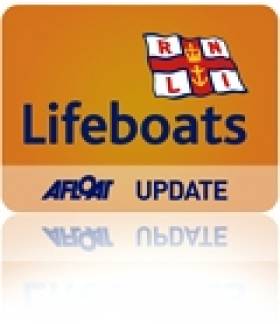Displaying items by tag: Innishmore
Lifeboat Roundup: Windsurfers Rescued In Waterford; Boats Aground in Wexford, Lough Erne
#RNLI - The Dunmore East RNLI lifeboat was tasked yesterday (7 April) to assist two windsurfers in difficulty near Duncannon in Waterford Harbour.
In rough conditions yesterday afternoon, with south-east winds force 6/7 blowing, coxswain Pauly Daniels reached the casualties' position within 30 minutes.
By this stage one of the surfers had made it ashore safely at Duncannon. The Dunmore East lifeboat quickly located the other windsurfer a quarter of a mile north of Duncannon. The casualty was safely recovered from the water and landed ashore nearby.
Neither casualty was injured and did not need medical attention.
Nearby in Wexford, five teenagers were rescued from a small speedboat after it suffered engine failure and ran aground on the River Slaney around 1.20pm yesterday.
According to Lorraine Galvin, volunteer press officer at Wexford RNLI, the teens' "fast call for help to the coastguard greatly helped in ensuring their speedy rescue in cold, rough weather conditions".
At the time of the rescue there were wind speeds of force 5 south-easterly and a rough sea state. All of the passengers were starting to suffer from the cold and were treated for mild hypothermia.
Meanwhile, on Upper Lough Erne last Friday the volunteer lifeboat at Enniskillen RNLI (Carrybridge) launched to reports of a vessel that had run aground.
The RNLI lifeboat and rescue water craft were both launched and proceeded to the casualty's last known location 2.5 miles upstream from Carrybridge at Innishmore viaduct.
On route to the scene at the Innishmore viaduct, the volunteer crew got further information that the vessel had managed to refloat and was currently at Killygowan Island.
A full inspection was carried out and none of the crew on the casualty vessel were found to be in need of medical attention.
It was decided with the owner's permission that the volunteer crew would escort their vessel back to Carrybridge with the lifeboat leading and rescue water craft following as the navigation lights were not working.






























































